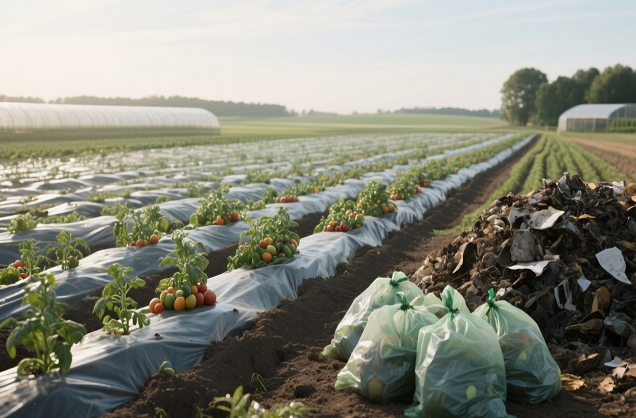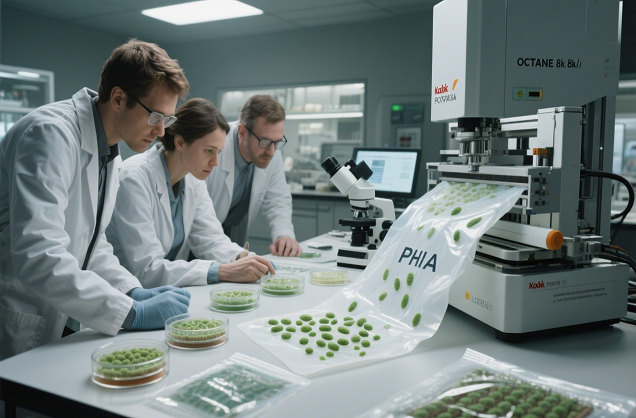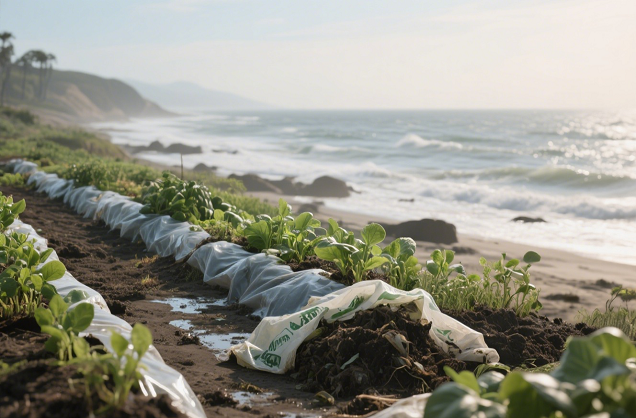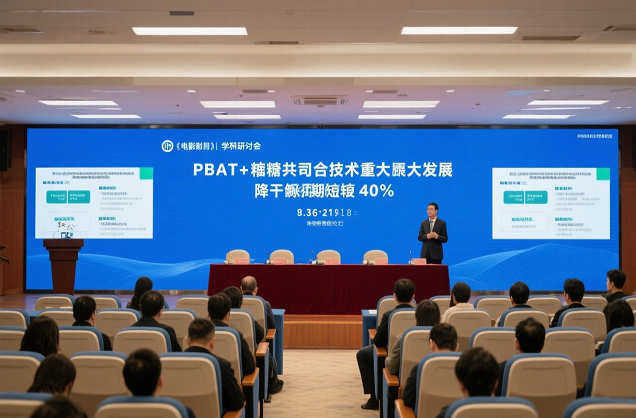Gene-Edited Bacteria Produce PHA: The Next Generation of Degradable Material Black Technology
Biological Solutions to the Plastic Crisis
In 2024, global plastic pollution has reached a tipping point, and the limitations of traditional biodegradable materials such as PLA are becoming increasingly apparent. Against this backdrop, scientists have set their sights on the revolutionary technology of gene-editing bacteria to synthesize PHA. The latest report from the U.S. Department of Energy shows that this technology is expected to reduce the production cost of biodegradable materials by 60% within three years, revolutionizing the industry landscape.

Part I: What is PHA and what makes it so special?
PHA's Unique Advantages
Characteristics PHA Conventional PLA Petroleum-based plastics
Degradation environment Seawater/soil/composting Industrial composting only Non-degradable
Degradation time 3-6 months 6-12 months 500 years or more
Heat resistance 120°C 60°C 150°C
Production cost 4.2 USD/kg (2024) 2.1 USD/kg 1.3 USD/kg
Data source: 2024 Annual Report of the International Society for Biomaterials
Bottlenecks in Traditional Production Methods
Three major challenges for traditional PHA production processes:
High raw material costs: pure vegetable oils and fats are required as carbon sources
Low yields: natural bacteria synthesize at less than 30% efficiency
Difficulty in extraction: wall-breaking extraction costs 40% of the total cost.

Part II: How gene editing breaks through the production barrier?
Three major directions of transformation in CRISPR-Cas9 technology
Carbon source utilization expansion
Editing cyanobacterial genes to enable direct PHA synthesis from industrial exhaust gases (CO₂)
University of Cambridge team has achieved a 300% increase in conversion of atmospheric CO₂
Optimization of metabolic pathways
Insertion of PHA synthesis gene clusters in marine bacteria
Enabling E. coli PHA production to increase from 30% to 80% of dry weight
Construction of an autofracturing system
Programming Bacteria automatically rupture at the end of culture to release PHA
Korea Institute of Science and Technology (KIST) has achieved a 75% reduction in energy consumption for extraction
Breakthroughs in 2024
Danimer Scientific, USA: Completed the first 10,000-ton per year production line of PHA from gene-edited bacteria
Qingdao Institute of Energy, Chinese Academy of Sciences (QIEC): Developed high-temperature-resistant engineered bacterial strains (high efficiency production at 55°C)

Part III: Application Scenarios and Market Prospects
Four major fields that are about to be disrupted
Ocean-friendly packaging
Replacement of traditional fishing nets (source of 800,000 tons of marine plastic pollution per year)
Measured data: 4 months in seawater, complete degradation
Medical implant materials
Cardiac stents, surgical sutures
Biocompatibility beyond the traditional PLA
3D Printing Consumables
Heat-resistant up to 120°C, suitable for the printing of functional parts
BASF of Germany has already launched a commercial wire
Agricultural film
Degrades in soil in 90 days
Cotton field trials in China's Xinjiang show 8% yield increase

Part IV: How do companies layout?
Financing hotspots for startups
Newlight Technologies (U.S.)
Production of PHA using methanogens
Invested by Amazon Climate Commitment Fund
RWDC Industries (Singapore)
Kitchen waste oil and grease conversion technology
Establishing a strategic cooperation with Nestlé
Transformation proposal for traditional enterprises
Technology cooperation: linking up with a biotech company
Pilot production line: establishing a kiloton demonstration project first
Certification first Pilot production line: set up a kiloton demonstration project first Certification first: obtain FDA/EFSA approval in advance
 Significant progress in PBAT/s
Significant progress in PBAT/s
 PLA/PBAT composite film degrad
PLA/PBAT composite film degrad
 A New Choice for Takeaway Pack
A New Choice for Takeaway Pack
 Significant progress in PBAT+s
Significant progress in PBAT+s
CONTACT
Add: Room 4006, No.1 Helong Yiheng Road, Baiyun District, Guangzhou City
Tel: +8613450255948
Wechat : +86-13450255948
Fax: +86-13450255948
E-mail: 13450255948@163.com








